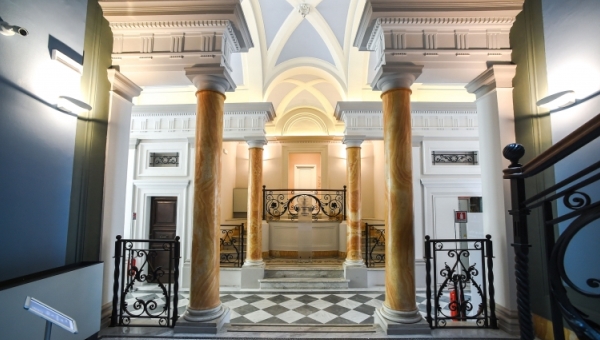John Cabot University Partners with New Scuola di Servizio Civico in Rome
John Cabot University is pleased to announce a partnership with the Scuola di Servizio Civico (School of Civil Service), founded in 2019 in Rome by politician and former mayor of Rome Francesco Rutelli. The school partners with four universities in Rome: John Cabot University, La Sapienza University, Roma Tre University, and Università Telematica degli Studi (IUL).
The school has a multidisciplinary approach aimed at educating future public administrators of the city of Rome. The program will provide insight into 10 different areas of government, such as digitization and innovation, urban ecology and sustainability, and soft skills development. These subjects, together with on-site classes, are geared toward preparing students to successfully face new challenges and scenarios while giving them a thorough grasp of the different areas of government. The orientation of over 50 students will take place on September 25, in the Aula Magna of La Sapienza University.
The school’s faculty is composed of 150 high-profile professors and professionals in the fields of cultural heritage, enterprise, and public administration. Four JCU professors will be part of the faculty: Andrea Lanzone, Professor of History and Assistant Dean of Student Academic Affairs; Isabella Clough Marinaro, Professor of Italian Studies; Gina Siddu Pilia, Lecturer in Italian; Silvia Scarpa, Professor of Political Science.
Professor Antonella Salvatore, Director of JCU’s Center for Career Services and Continuing Education, is the school’s academic coordinator. She will also coordinate two specific academic areas, namely, “Inclusion and Social Services. Migration and Integration. Health and Wellbeing” and “Economics and Production Assets. Work and Soft skills Development.”
“Rome needs a school like this,” said Professor Salvatore. “Cities are changing, also due to the pandemic. The health emergency we are facing is reshaping the way we experience cultural heritage and use infrastructures as well as transportation. For this reason, I think that public administrators will need the innovative skills and digital competencies offered by the Scuola di Servizio Civico in order to cope with these new scenarios.”






